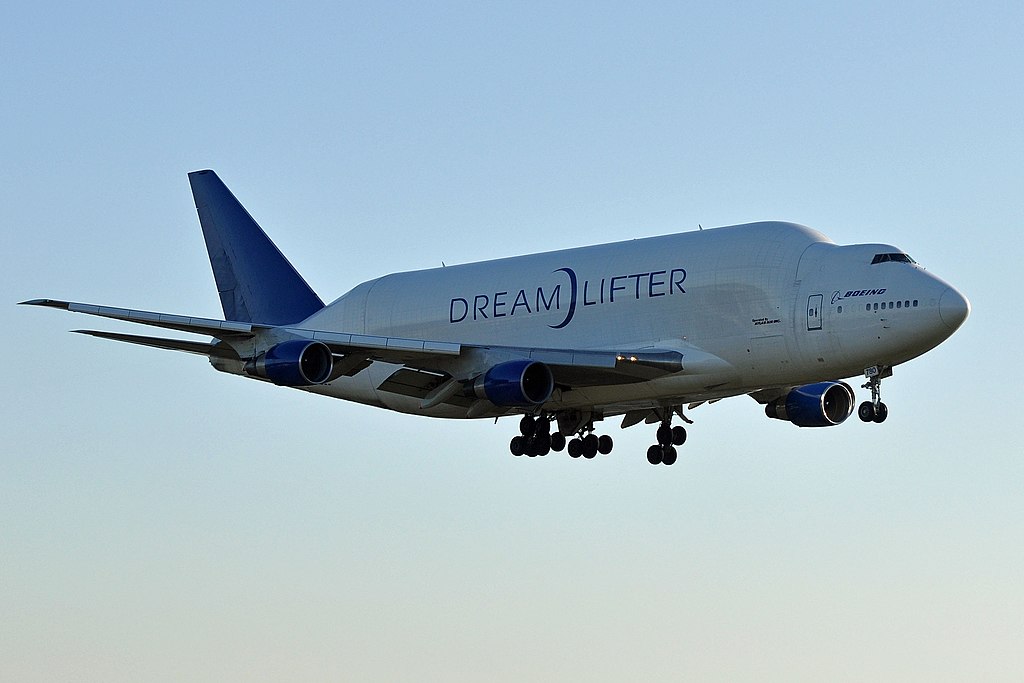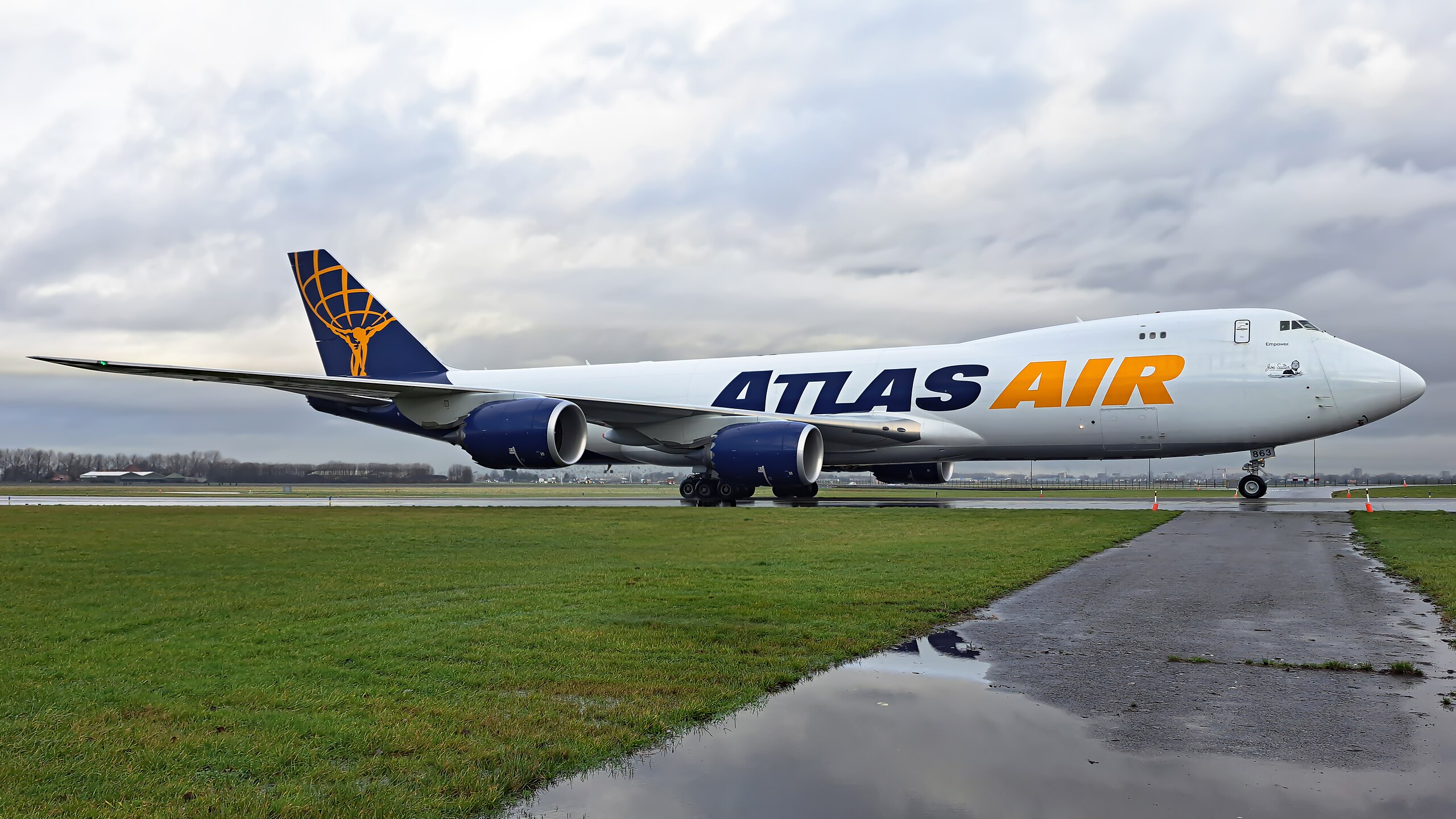In the dynamic world of aviation, Atlas Air stands out as a leader in air cargo transportation and aviation services. With a diverse fleet of aircraft and a global network of operations, Atlas Air plays a vital role in the global supply chain, delivering goods and resources to destinations around the world. In this article, we explore the history, operations, and impact of Atlas Air on the aviation industry.
Founded in 1992, Atlas Air has built a legacy in air cargo transportation and aviation services. From its humble beginnings as a charter operator with a single aircraft – Boeing 747-200F N808MC, the company has grown into a global powerhouse, serving a wide range of customers, including major airlines, freight forwarders, governments, and humanitarian organizations. With a focus on innovation, reliability, and customer service, Atlas Air has earned a reputation for delivering cargo safely, efficiently, and on time, even in the most challenging conditions.
Atlas Air operates a diverse fleet of modern and fuel-efficient aircraft, including Boeing 747 freighters, Boeing 767 freighters, and Boeing 777 freighters. These aircraft are strategically deployed across a global network of routes, connecting key trade lanes and markets around the world. Whether transporting perishable goods, e-commerce packages, or oversized cargo, Atlas Air’s fleet and network capabilities enable it to meet the diverse needs of its customers while maintaining the highest standards of safety and reliability.
In addition to its core air cargo operations, Atlas Air provides a range of aviation services, including aircraft leasing, charter passenger service, and military airlift support. The company’s solutions and strategic partnerships have allowed it to expand its presence in new markets and capitalize on emerging opportunities in the aviation industry.
Atlas Air leases cargo aircraft to many international airlines, such as British Airways, Emirates, FedEx, Korean Air, LATAM Airlines, Lufthansa, Qantas Airways, Air New Zealand or TAAG Angola Airlines. Usually those aircraft get painted in the customer’s own livery and only a sticker with inscription ‘operated by Atlas Air’ indicates Atlas Air as the operator.
Some of the aircraft types currently used by Atlas Air include:
- Boeing 747 freighters: Atlas Air operates various models of the Boeing 747, including the 747-400, 747-400ERF, and 747-8F. One of the airline’s 8 Boeing 747-8F – N863GT – is the last Boeing 747 ever built.
- Boeing 767 freighters: Atlas Air operates the Boeing 767-300ERF, which offers a versatile platform for medium to long-haul cargo missions. The 767 freighter provides a balance of capacity, range, and fuel efficiency, making it ideal for serving a wide range of markets.
- Boeing 777 freighters: Atlas Air operates the Boeing 777F, a modern and fuel-efficient wide-body freighter with a long range. The 777F is capable of transporting large payloads over extended distances, making it well-suited for intercontinental cargo operations. Just recently the airline has announced the additional order of 2 new 777-200 freighters.
- Boeing 737 freighters: Atlas Air operates the Boeing 737-800BCF (Boeing Converted Freighter), which offers a flexible and cost-effective solution for short to medium-haul cargo missions. The 737 freighter is ideal for serving regional markets and operating on shorter routes. All of those 737’s are currently operated by Amazon Prime Air.
- Passenger aircraft: In addition to cargo operations, Atlas Air also provides passenger charter services using aircraft such as the Boeing 767-300ER and Boeing 747-400. These aircraft are configured with comfortable seating arrangements and amenities to accommodate various passenger travel needs.
Overall, Atlas Air’s fleet consists of a mix of wide-body and narrow-body aircraft, allowing the company to offer a diverse range of cargo and passenger services to its customers worldwide.
The Boeing 747 Large Cargo Freighter (LCF), also known as the Dreamlifter, is operated by Atlas Air on behalf of Boeing. The Dreamlifter is a modified version of the Boeing 747-400 designed to transport oversized cargo components, such as fuselage sections and wings, for Boeing’s commercial aircraft production facilities.
Atlas Air operates a fleet of four Boeing 747LCF aircraft, which are specially modified with a unique hinged fuselage that opens upward to allow for the loading and unloading of large cargo components.
As the operator of the Boeing 747LCF fleet, Atlas Air provides crew, maintenance, and operational support for these specialized cargo aircraft.

Atlas Air does not operate traditional passenger hubs like commercial airlines. Instead, as a global air cargo carrier, Atlas Air utilizes various airports around the world as strategic hubs for its cargo operations. These hubs serve as key points in Atlas Air’s route network, facilitating the consolidation, transfer, and distribution of cargo shipments to and from different regions.
While Atlas Air does not have its own dedicated hub facility, it partners with major cargo airports and logistics centers to optimize its operations and provide efficient service to its customers. Some of the airports frequently used by Atlas Air as hubs or key operational bases include:
- Cincinnati/Northern Kentucky International Airport (CVG) in the United States: CVG is a major cargo hub in the United States and serves as a key gateway for Atlas Air’s operations in North America.
- Miami International Airport (MIA) in the United States: Atlas Air is based in Miami. MIA is a major cargo hub in the Americas and serves as a strategic gateway for Atlas Air’s operations in the Caribbean, Latin America, and beyond.
- Amsterdam Airport Schiphol (AMS) in the Netherlands: AMS is one of Europe’s busiest cargo airports and serves as a key hub for Atlas Air’s operations in Europe, the Middle East, and Africa.
- Hong Kong International Airport (HKG) in Hong Kong: HKG is a major cargo hub in Asia and serves as a key gateway for Atlas Air’s operations in the Asia-Pacific region, including China and Southeast Asia.
- Dubai International Airport (DXB) in the United Arab Emirates: DXB is a major cargo hub in the Middle East and serves as a strategic gateway for Atlas Air’s operations in the Middle East, Africa, and beyond.
These airports, among others, play a crucial role in Atlas Air’s global network, providing the infrastructure, facilities, and services necessary to support the company’s air cargo operations and meet the needs of its customers worldwide.
Atlas Air has a strong safety record overall. However, one notable accident involving an Atlas Air aircraft occurred on February 23, 2019. The incident involved Atlas Air Flight 3591, a Boeing 767-300ER operating a cargo flight from Miami International Airport to George Bush Intercontinental Airport in Houston, Texas, with a final destination of Houston Executive Airport.
The aircraft crashed into Trinity Bay near Anahuac, Texas, while descending into Houston. The accident resulted in the loss of all three crew members on board.
The final NTSB report identified the probable cause of the accident as the first officer’s inappropriate response to an inadvertent activation of the aircraft’s go-around mode, which led to a loss of control and subsequent crash. The investigation also highlighted contributing factors such as the first officer’s lack of experience with the aircraft’s autothrottle system and the captain’s inadequate training as a pilot-in-command.
With its unwavering commitment to safety, reliability, and customer service, Atlas Air continues to play a vital role in the global supply chain, connecting people, businesses, and communities around the world. As the company looks ahead to the future, its legacy in air cargo transportation and aviation services will undoubtedly continue to soar to new heights.

